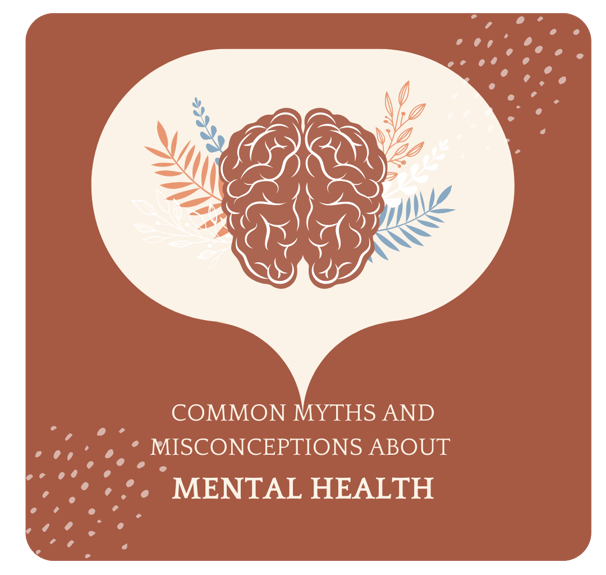Common Myths and Misconceptions about Mental Health
5/12/20242 min read


Our health is an overall component of our physical and mental health. We feel more comfortable talking and getting help for physical health rather than mental health. While on the other hand, we always underestimate and ignore the most important aspect of our mental health. As much as stigma is spread around mental health there are lots of myths and misconceptions which are there creating boundaries for people to take help in the same.
We will learn some of the myths and misconceptions to have a better understanding of what the truth holds
Mental Health Issues Are Rare
We always assume that we cannot go through any mental health issues because we do not want people to think of us as insane. Even when we have any kind of issue, we are afraid and feel ashamed to accept it.
According to the survey done by NIMHANS (National Institute of Mental Health and Neurosciences) in 2015-16, around 150 million people in India had some kind of mental issues. According to the survey, mental disorders were found to be nearly twice as common (13.5%) in urban areas as they were in rural ones (6.9 %).
The above data proved the falsification of the misconception that mental health issues are rare. Mental health issues are as common as any physical health issue these days.
Mental Health Problem is a Sign of Weakness
Most of the time people facing any kind of psychological issue do not seek help because they seem they’ll be perceived as weak for taking help. Every person around wants to be seen as stubborn as they can. But if seeking physical help is not a sign of weakness then how is seeking psychological help a sign of weakness?
This misconception is just stuck in our thoughts. Once we start accepting any help we can, that won’t be a bigger problem in society. As a society, we should encourage people around us who are going through any kind of psychological issue to seek help and make them feel comfortable.
Children Don't Experience Mental Health Problems
People often think children are too young to have any kind of psychological issues. But this is completely wrong. Although, children can have different kinds of psychological problems and symptoms they do face mental health issues.
Autism Spectrum Disorder, Attention Deficit Hyperactivity Disorder, Dyslexia, Depression, and PTSD are some common disorders that can be found in children.
You Only Need to See a Psychologist When You're 'Crazy'
People often believe that seeing a psychologist is only necessary for those with significant mental health problems or for those who are "crazy." Psychologists assist clients with a variety of concerns, ranging from minor mental health conditions to serious stress and relationship challenges. Later, more serious issues can be avoided by obtaining assistance for minor concerns and implementing early intervention.
Psychologists Can Read Minds
Psychologists often appear in films and other media as having the ability to read people's minds or to understand all elements of their lives in one go. Psychologists are great at understanding emotions and behavior, yet they are not mind readers. They assess and assist people using evidence-based techniques, but they also need to work in tandem with their clients for proper communication.
